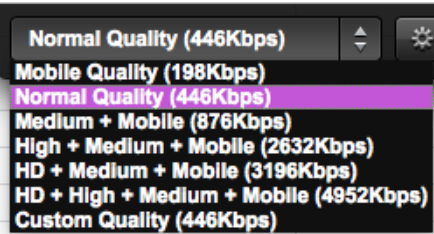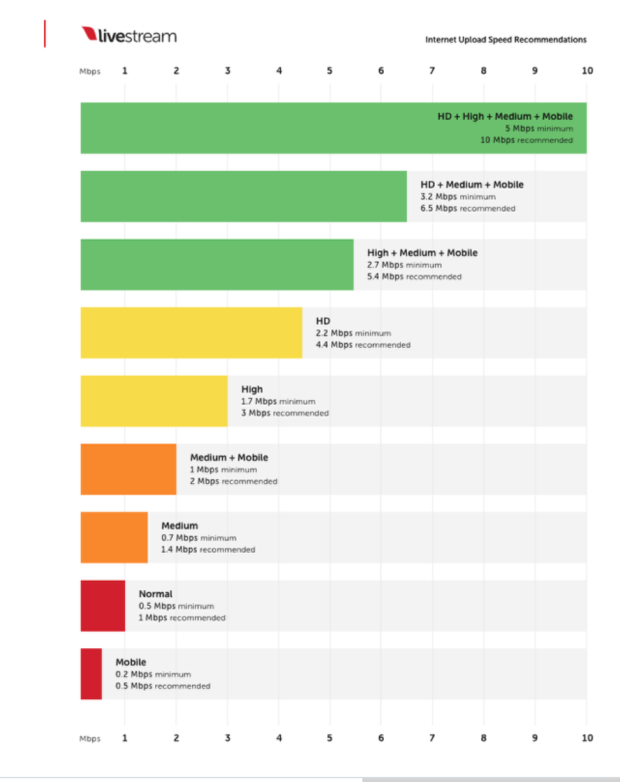
LIVE STREAM SPECS
Pick & set up your live video encoder
TheaterMania Streaming uses RTMP, which stands for real-time messaging protocol. It provides for high-performance transmission of audio, video, and data from an encoder to a server, which distributes the signal across the Internet. Many streaming providers and encoder developers support RTMP streaming.
Which encoders support RTMP?
Encoders that can be used to stream to TheaterMania Streaming via RTMP include, but are not limited to:
* Open Broadcaster Software (OBS)
* Wirecast
* XSplit Broadcaster
* Livestream Studio
* StreamYard
Cloud transcoding
This feature also includes cloud transcoding. This means you can stream a single bitrate from your encoder, which we convert into various lower bitrates in the cloud for you. For example, if you send your stream at 1920×1080 at a minimum bitrate of 4Mbps, the possible qualities viewers can watch are:
*1080p: 1920×1080, 5256kbps
* 720p: 1280×720, 2756kbps
* 540p: 854×480, 1756kbps
* 360p: 640×360, 628kbps
The player will automatically adjust which bitrate each viewer sees depending on that person's internet connection speed. This greatly reduces the required bandwidth you need in order to stream in multiple bitrates while also providing the best possible experience for your viewers.
Encoder setup recommendation
TheaterMania Streaming uses the incoming resolution to determine which qualities the cloud can transcode the video in. Lower incoming bitrates cannot be transcoded to higher qualities in the cloud; in other words, if you stream at a quality less than 720p, then your stream will not be available in 720p or 1080p.
To get the most out of the cloud transcoding feature, we recommend that you configure your encoder as follows:
* Video bitrate: 5000kbps
* Audio bitrate: 256kbps
* Resolution: 1920×1080
* Frame rate: 30 frames per second
* Keyframe interval: 2 seconds
Other best practices
Bandwidth recommendations
The most reliable Internet connection when streaming is connecting directly via Ethernet to a dedicated network. This means that no other computers or devices have access to that network. This connection type is less likely to experience bandwidth fluctuation than shared networks or wireless connections.
A general rule of thumb is to have twice as much upload speed available as the bitrate you want to stream at. An average bitrate of each preset quality is listed in the quality menu of most encoders:

The chart below from our friends at Livestream, which is a Vimeo company, gives a general guideline of the recommended upload speeds for some presets:

Firewall requirements
Your network needs to be able to maintain a back-and-forth communication with Livestream. In order of importance, the following Firewall ports on your network should be open to incoming and outgoing communication:
* TCP 1935
* TCP 80
* TCP 443
* UDP 53








